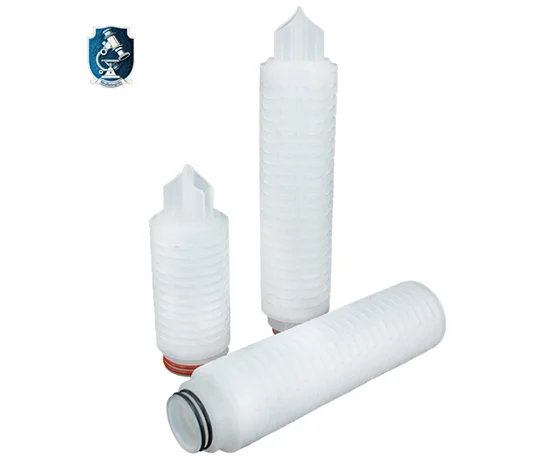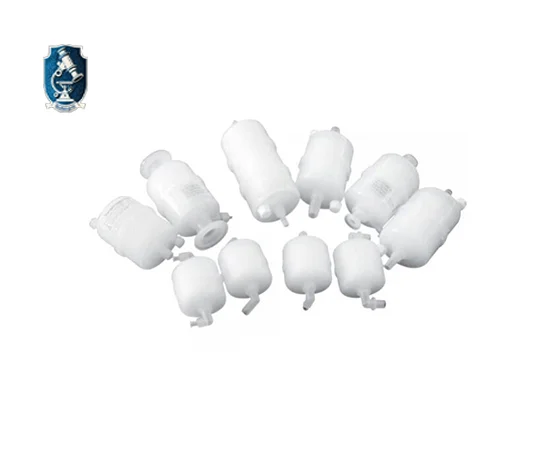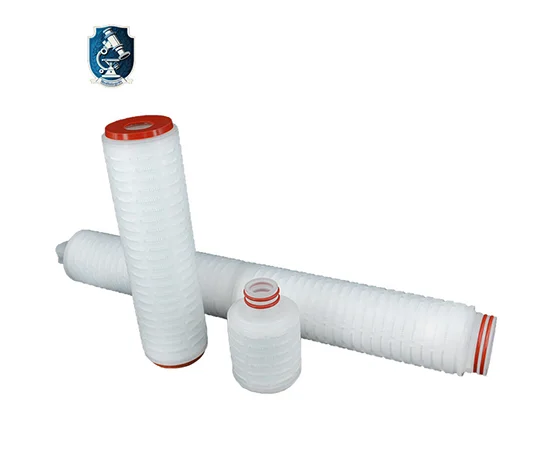Why a High-Quality Cartridge Filter is Essential for Effective Filtration Systems
Why a High-Quality Cartridge Filter is Essential for Effective Filtration Systems

Cartridge filters are super important in today’s cleaning systems. They do a big job in factories and labs. People love them because they work great, are exact, and follow tough rules in many areas.
What Cartridge Filters Do in Factories and Labs
Cartridge filters have lots of jobs depending on what’s needed. They can do rough cleaning, fine cleaning, or final cleaning. In labs, they keep liquids super clean by taking out tiny bits and germs before important tests or making stuff. In factories, they protect machines by removing dirt from liquids or air.
How Cartridge Filters Help Systems Work Better and Keep Products Good
Cartridge filters keep things flowing smoothly and grab lots of dirt. This makes machines run well. They stop clogs or dirt from slowing things down. So, work gets done faster, and less fixing is needed. Plus, they make products better by getting rid of bad stuff that could mess up safety or quality.
Kinds of Cartridge Filters and Where They’re Used
Different cartridge filters are made for special tasks based on what they’re made of and how they’re built.
PES (Polyethersulfone) Cartridge Filters
PES filters are awesome because they don’t stick to proteins and let liquids flow fast.

Why They’re Great in Medicine and Drug Making
These filters are perfect for keeping things sterile in drug-making. They handle chemicals and heat well. People use them for things like cell culture media, vaccines, eye drops, and other delicate liquids where keeping things pure is a must.
PTFE (Polytetrafluoroethylene) Cartridge Filters
مادة البولي تترافلوروإيثيلين is another cool material for cartridge filters because it has special features.

Why They’re Good for Gases and Strong Liquids
PTFE filters are great for cleaning tough liquids and gases since they push water away. They stand up to harsh chemicals. This makes them ideal for making electronics, processing chemicals, or cleaning air in a sterile way.
Capsule Filters with Pleated Design
Capsule filters aren’t like regular ones. They have filter material packed into a small, sealed box.

Small Size but Holds Lots of Dirt
Capsule filters have a folded design that gives more space to catch dirt without being big. This means they can hold a lot of junk while staying tiny. They’re great for one-time-use systems or small spaces like lab setups.
What Makes a Cartridge Filter Really Good
Picking a great cartridge filter means checking things that affect how it works, how safe it is, and how long it lasts.
How Well It Filters and Meets Standards
A good filter has exact hole sizes to catch stuff every time. You can test it with a filter checker to make sure it works with different materials, hole sizes, and setups. This keeps things steady across all batches.
Toughness During Cleaning and Pressure
Top filters can handle cleaning over and over, like with hot steam or autoclaves. They also stay strong when pressure changes. This keeps them working without breaking.
Working with Chemicals, pH, and Hot or Cold Temps
The filter material must be okay with strong chemicals, weird pH levels, or super hot or cold conditions. If it’s not a good match, the filter might break or let bad stuff into the product.
Common Sizes and Shapes of Cartridge Filters
Cartridge filters come in all sorts of sizes to fit different needs.
Usual Lengths, Widths, and Layer Options
Common lengths are 5″, 10″, 20″, 30″, and 40″. Widths are usually 2.5″ to 4″. Filters with many layers catch dirt at different spots inside, which makes them better at cleaning.
Picking the Right Size for Flow and Needs
Choosing the size depends on how thick the liquid is, how fast it needs to flow, how much pressure the system can handle, and how much dirt there is. Too-big filters cost too much. Too-small ones need swapping too often or slow things down.
Choosing Materials for the Best Results
Picking the right stuff for filters makes them last longer and work better for specific jobs.
Comparing Filter Materials: PES vs. PTFE vs. PP vs. N66
PES is great for clean water-based jobs because it doesn’t leak much. PTFE is best for tough chemicals. Polypropylene (PP) works with lots of things and is cheaper. Nylon 66 (N66) is strong but might stick to proteins more than PES.
Why Support Parts Like PP Skeletons and Seal Coils Matter
Support parts like PP skeletons keep filters sturdy when pressure changes. Seal coils make sure there are no leaks without using glue. This is super important to avoid extra stuff in sensitive processes.
Why Top-Grade Cartridge Filters Are Awesome
Using great cartridge filters brings big wins for all kinds of work.
More Work Done and Longer Use
Top filters hold more dirt and last longer while keeping flow steady. This saves money because you don’t need to replace them as often.
Less Chance of Dirt with No-Glue Seals
Seals without glue stop dirt from sneaking in during cleaning. This is a big deal in drug-making where everything must be super clean.
Easy Tracking with Number Systems
Each great filter has its own number. This makes it easy to track from when it’s made to when it’s thrown out. It helps follow rules like GMP.
Industries That Use Awesome Cartridge Filters
Cartridge filters are used in lots of places that need things to be super clean.
Drug Making and Sterile Places
Making drugs needs clean systems with PES or PTFE filters to stop germs. This keeps batches the same and follows strict rules.
Food and Drink Making with High Cleanliness Needs
In food and drink work, filters clean water or products like beer or wine without changing how they taste. This keeps things safe and meets clean standards.
Electronics Work Needing No Particles
Making computer chips needs super clean water with no tiny bits. PTFE filters are key because they don’t react with the strong chemicals used.
Meet MedIntegrity, a Great Filter Supplier
ميدإنتجريتي is a trusted company that offers cleaning solutions for important jobs across industries.
What MedIntegrity Offers: PES, PTFE, Capsule Filters, Housings
They have Filter Cartridges, Needle filters, Capsule filters, and strong housings that work with all kinds of systems. This makes them easy to use in any setup, big or small.
Focus on Quality: Testing Every Filter Before Sending
MedIntegrity checks every filter’s strength before it Karla shipping it out. This shows they care about making sure their products are top-notch.
How to Contact MedIntegrity for Help or Orders
For questions or to order filters that fit your industry, talk to MedIntegrity’s expert team through their website’s الاتصال page.
Why Picking Great Cartridge Filters Matters
Choosing top-quality cartridge filters keeps work running smoothly and products safe in important jobs like making drugs or electronics. By picking materials like PES or PTFE that fit the job and working with trusted companies like MedIntegrity, businesses can save time, make filters last longer, stay safe, and keep track of quality for every batch.
الأسئلة الشائعة
Q1: What’s the difference between PES and PTFE cartridge filters?
A: PES (Polyethersulfone) flows fast and doesn’t stick to proteins. It’s great for clean water-based jobs like drug-making. PTFE (Polytetrafluoroethylene) pushes water away and resists strong chemicals. It’s perfect for gases or harsh liquids in electronics or chemical work.
Q2: How do I know my cartridge filter is good quality?
A: Look for a unique number for tracking, no-glue seals to avoid dirt, and proof it works with pH and temperature. Make sure the supplier tests the filter’s strength before shipping.
Q3: Can capsule filters take the place of regular cartridges?
A: Yes, in some cases, like one-time-use systems or small lab jobs. Capsule filters have folded surfaces in sealed cases. They’re handy and hold lots of dirt while staying clean.







